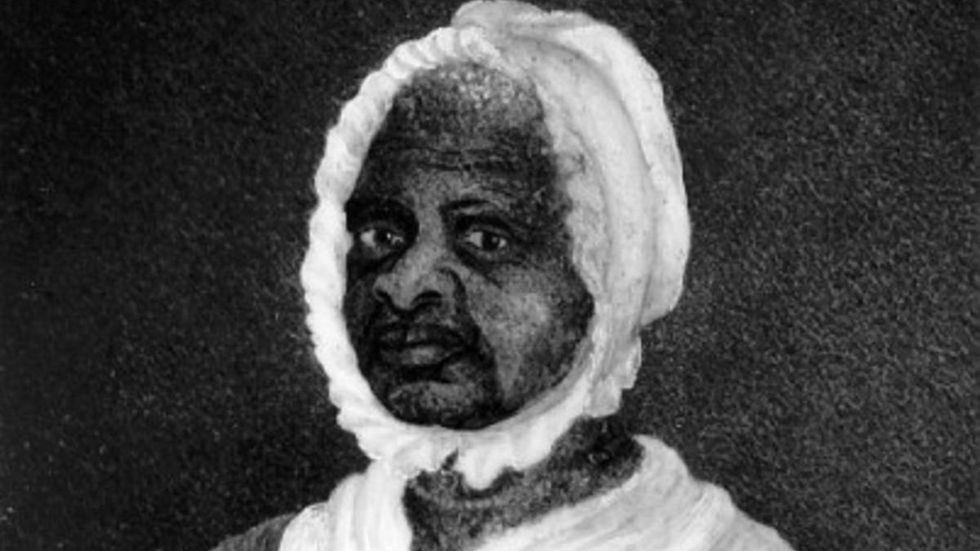
© 2025 Blaze Media LLC. All rights reserved.
Slavery was not abolished wholesale in the United States until 1867 with the ratification of the 13th Amendment. So ended the great black mark of our republic. However, for the state of Massachusetts, that mark ended before the turn of the 19th century.
One of the most pivotal players in making the Bay State slave-free long before full emancipation was a slave herself. And as Sen. Mike Lee, R-Utah, details in his new book, “Written Out of History” (Penguin Random House), she fought for her own freedom in court long before the outset of the Civil War.
In the collection of stories about forgotten figures in America’s founding, Lee tells the story of Mum Bett, who was a slave in the home of Colonel John Ashley in Massachusetts.
She longed for freedom, and the words of the Sheffield Declaration – which was mostly drafted in her master’s study – especially resonated with her. So much so, it eventually drove her to seek out the kind of liberty that people like Ashley were writing about and fighting for.
“Mum Bett heard those who gathered in her master’s house discussing the principles of freedom and liberty on which the new nation was being founded,” Sen. Lee writes. “Even as a slave, [she] … knew those words were meant for her also.”
For years, Bett waited and yearned for the realization of her God-given liberty, until one day, a particularly appalling run-in with Mrs. Ashley spurred her to take action.
The book recalls that Bett and her sister, Lizzie, were working in the kitchen when Mrs. Ashley spotted Lizzie eating crumbs and scraps from a batch of bread she had just made. Screaming, “Thief, thief,” Ashley went to the stove and pulled out a red-hot coal shovel, lifting it above her head.
The book described the rest as such:
As Mrs. Ashley swung to bring the shovel down on Lizzie, Bett dived forward and placed herself in between her sister and her crazed mistress, with her arm above her head. Her arm caught the force of the blow, shielding Lizzie. The pain was searing. Bett felt it start in her arm and immediately radiate outward, shocking her entire body. But she didn’t scream.
Bett summarily walked out of the house and down the road to enlist the aid of politician and attorney Theodore Sedgwick – who had helped Colonel Ashley with the Sheffield Declaration years before – to represent her in a lawsuit for her freedom. He took her on as a client.
Then it was on; the lawsuit began with another slave of Ashley’s son in a nearby town.
Eventually – after a long wait for the trial and some legal shuffling, the jury found that Bett was a free woman, and that no other human being had any claim to her ownership under the new constitution of the Commonwealth of Massachusetts. The Ashleys even had to pay damages.
Later, the liberated Mum Bett would become Elizabeth Freeman and would take a job as a paid servant of the Sedgewicks under her own volition, quickly becoming a “pillar of the household.” She would eventually die some years later in a home she bought with her own savings, leaving a legacy of liberty in our fledgling republic.
“When she won,” Sen. Mike Lee writes, “it was a victory for natural rights in the face of entrenched interests.
“When the first U.S. Census was taken in 1790, nine years after Mum Bett’s victory in court, her home state of Massachusetts was the only state in the new nation that was found to have no slaves among its population.”
Mum Bett – properly Elizabeth Freeman – is just one of a handful of forgotten figures memorialized in the pages of Lee’s newest work. “Written Out of History” follows two years after the publication of his previous one, “Our Lost Constitution,” and seeks to offer “a true, alternative history of our nation’s founding.”
By telling the stories of people like Freeman, George Mason, Aaron Burr, and others, the senator says that he hopes to remedy what he sees as an imbalance in our popular understanding of the Constitution – one which tends to err on the side of big government (and against liberty).
Lee contends all this is no accident; it is because of the framing of the founding by the Left. And that is what makes the all-but-forgotten history lessons of the book (to be released on May 30) so necessary.
Lee concludes with today’s hard truth: “If you don’t fit a certain version of history […] if your story is inconvenient to the notion that we all benefit from a strong central government in which every aspect of human existence can be regulated by bureaucratic experts in Washington, then you might run the risk of being written out of history.”
Want to leave a tip?
We answer to you. Help keep our content free of advertisers and big tech censorship by leaving a tip today.
Want to join the conversation?
Already a subscriber?
more stories
Sign up for the Blaze newsletter
By signing up, you agree to our Privacy Policy and Terms of Use, and agree to receive content that may sometimes include advertisements. You may opt out at any time.
Related Content
© 2025 Blaze Media LLC. All rights reserved.
Get the stories that matter most delivered directly to your inbox.
By signing up, you agree to our Privacy Policy and Terms of Use, and agree to receive content that may sometimes include advertisements. You may opt out at any time.






